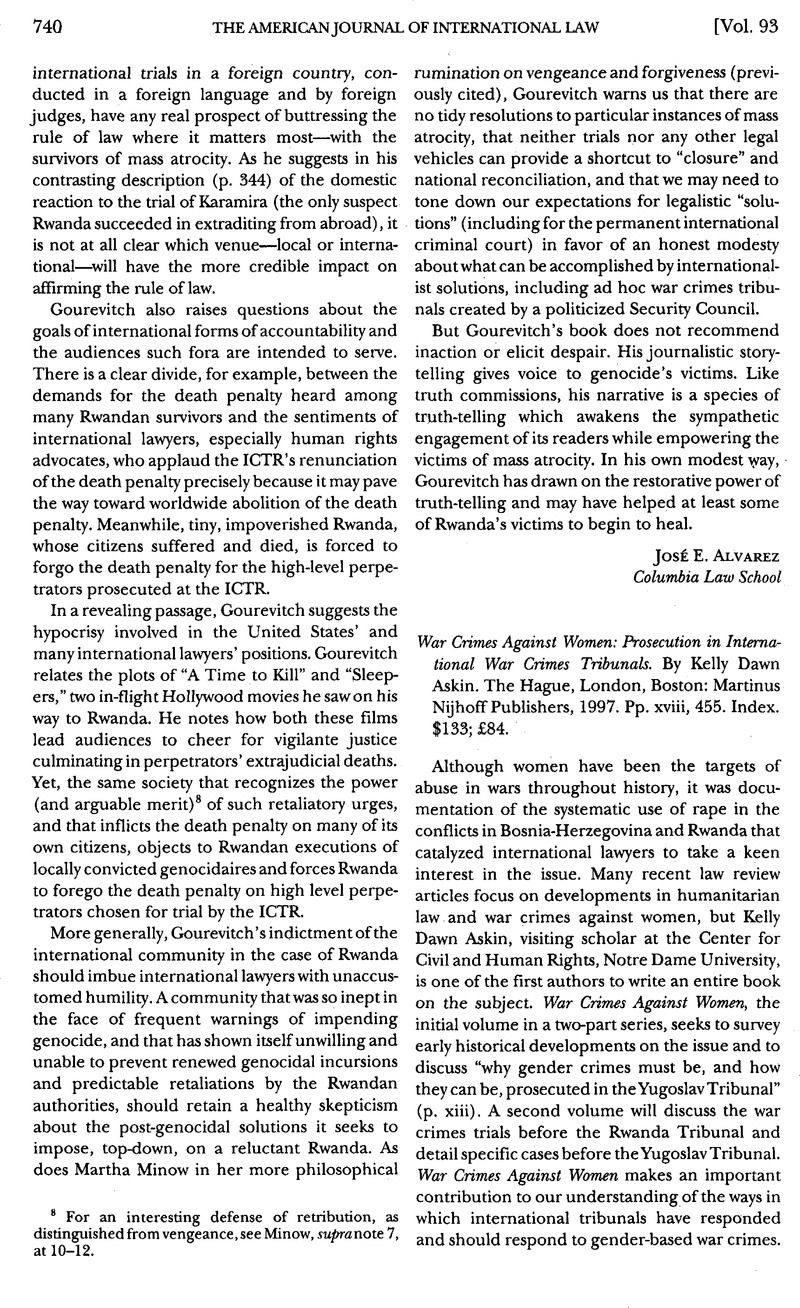Published online by Cambridge University Press: 27 February 2017

1 Boutros Boutros Ghali, Introduction, in, UNDep’tof Public Information, The United Nations and Rwanda, 1993–1996, UN Sales No. E.96.I.20 (1996).
2 Gérard Prunier, The Rwanda Crisis: History of a Genocide (1995). See also, Alain Destexhe, Rwanda and Genocide in the 20th Century (Alison Marschner trans., 1995).
3 John Shattuck, Preventing Genocide: Justice and Conflict Resolution in the Post-Cold War World, 3 Hofstra L. & Pol’y Symp. 15, 21 (1999).
4 Compare Christopher Joyner, Redressing Impunity for Human Rights Violations: The Universal Declaration and the Search for Accountability, ”26 Denv.J.Int’l L. & Pol. 591 (1998) (arguing for a duty to prosecute on the ground that one should not “emasculate the law,”) with Jaime Malamud Goti, Dignity, Vengeance, and Fostering Democracy, 29 U. Miami Inter-Am. L. Rev. 417 (1998) (arguing that criminal trials in Argentina were counterproductive).
5 See, e.g., Dianne Otto, Rethinking the “Universality” of Human Rights Law, 29 Colum. Hum. Rts. L. Rev. 1, 42–44 (1997).
6 For a critical account of the treatment of Rwandan detainees since the 1994 genocide, see, for example, Mark A. Drumbl, Rule of Law Amid Lawlessness: Counseling the Accused in Rwanda’s Domestic Genocide Trials, 29 Colum. Hum. Rts. L. Rev. 545 (1998).
7 See, e.g., Paul Lansing and Julie C. King, South Africa’s Truth and Reconciliation Commission: The Conflict between Individual Justice and National Healing in the Post-Apartheid Age, 15 Ariz. J. Int’l & Comp. L. 753 (1998) (identifying some of the virtues of the truth-commission approach); see also Martha Mlnow, Between Vengeance and Forgiveness: Facing History After Genocide and Mass Violence 52–90 (1998).
8 For an interesting defense of retribution, as distinguished from vengeance, see Minow, supra note 7, at 10–12.